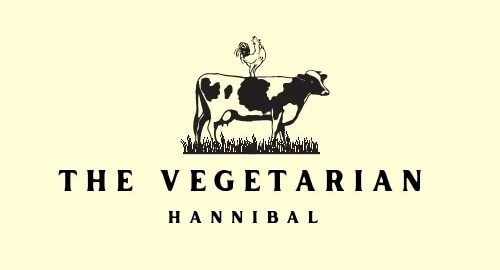Top 12 questions you should not ask vegans

Annoying or provoking someone based on their dietary choices is not a respectful or constructive approach. The following post is purely for entertainment purposes and should not be interpreted as a guide or encouragement to annoy or bother anyone. It’s important to treat others with respect and kindness, regardless of their dietary choices. Please remember to engage in conversations and interactions that promote understanding and empathy. Enjoy this lighthearted content, but always prioritize respect and consideration for others. This article explores the question: How to annoy a vegan?
Contents
How to annoy a vegan?
There are questions that most vegans can not stand. Here are the questions that vegans hate:
- “Where do you get your protein?”
- “Don’t you miss eating meat/cheese?”
- “Are plants not alive? Do they feel no pain?”
- “What do vegans feed their dogs?”
- “But how do you survive without milk?”
- “Isn’t being vegan extreme?”
- “What if you were stranded on a desert island?”
- “Do you think you’re better than non-vegans?”
- “Isn’t it natural for humans to eat meat?”
- “What’s the point if animals are still killed in crop production?”
- “Do you think you can change the world by being vegan?”
- “Can’t you make exceptions sometimes?”
Vegans have heard these questions so many times that they can’t stand them anymore and can react to this question in a very greedy way.

1. Where do you get your protein?
It is not incomprehensible that vegans react annoyed to this question. You don’t need to have studied to know that protein can also be found in plant products. If you want to have detailed information about vegan protein sources, you should have a look at the following articles:
- Top 10 vegan protein sources for breakfast and lunch
- Top 10 vegan protein sources for vegans on a budget
- Top 10 Vegan Protein Sources for Building Muscle
- Vegan protein sources
2. Don’t you miss eating meat/cheese?
This question is particularly frustrating for those who are vegan for ethical reasons. While many vegans will certainly not miss meat and meat products, many others will. But the question is not whether or not to miss the meat. It’s about sacrificing some “pleasures” and giving up some “pleasures”, even though we want certain things so that animals don’t suffer and are not killed. It is this lack of empathy on the part of the questioner that makes this one of the questions that vegans hate.
For a better understanding of vegans on this issue, see this article:

3. Are plants not alive? Do they feel no pain?
It is no wonder that vegans will also react annoyed on this question.
Do plants feel pain? No, plants do not have a central nervous system or a brain, which are necessary components for experiencing pain as humans or animals do. While plants have mechanisms to respond to stimuli in their environment, such as light, water, or touch, these responses are automatic and not indicative of the conscious experience of pain. The topic of plant sentience is a subject of scientific debate, but the consensus is that plants cannot feel pain.
Before you annoy vegans with these superfluous questions, you should do a little research yourself.
4. What do vegans feed their dogs?
Vegans do not believe that all creatures should be vegan. Vegans are about the fact that people uncontrollably and unnecessarily inflict suffering on animals, torturing and killing them.
Dogs are carnivores by nature. Unfortunately, some vegans want to make their pets vegan, but the number of vegans is very low. If you want to know what vegans feed their dogs, take a look at the following article:

5. How do vegans survive without milk?
Do you want to annoy a vegan? Ask this question. However, this question is not recommended, because the person who asks this question will be very embarrassed with it.
This is one of the most unnecessary questions for a vegan. Most likely, the vegan will answer this question with the following counter question:
“Why do you drink milk? Are you a calf?”
Does that sound logical to you? But everyone should know for himself whether he wants to drink milk or not.

6. Isn’t being vegan extreme?
The perception of veganism as extreme varies among individuals. Some people view it as a radical lifestyle choice, while others see it as a compassionate and ethical way to live. It ultimately depends on personal beliefs, values, and cultural backgrounds.
Veganism involves avoiding the use of animal products for various reasons, including animal welfare, environmental concerns, and personal health. For those who adopt this lifestyle, it is a principled commitment aligned with their values.
Is it extreme to be a part of a system that tortures and kills thousands of animals?
It’s important to approach discussions about veganism with an open mind and respect for different perspectives. What may seem extreme to one person may be seen as a necessary and meaningful choice by another. Engaging in respectful dialogue can lead to a better understanding of each other’s viewpoints.
7. What if you were stranded on a desert island?
This is the next question you can annoy a vegan with.
Survival instinct is an inherent and powerful force that resides within all living beings. It is an intricate mechanism that drives us to seek survival, protect ourselves, and strive for our well-being.
From the tiniest microorganisms to complex organisms like humans, this instinct manifests in various ways. It compels us to breathe, eat, and seek shelter. It triggers our fight-or-flight response when faced with danger, activating our bodies to respond and protect ourselves.
Survival instinct is deeply rooted in our biology and has been shaped by millions of years of evolution. It is the foundation of our survival as individuals and as a species. It drives us to adapt, learn, and innovate, enabling us to overcome challenges and ensure our continued existence. Therefore, almost all vegans would naturally choose to consume animals and not starve to death.

8. Do you think you’re better than non-vegans?
Someone who asks such a question has apparently not understood the meaning of veganism.
It is not about who is better. It is about the animals. “Vegan for the animals”.
It’s about animals no longer being tortured, killed, or exploited for profit. It’s about the pain animals feel being unnecessary in this age. We can survive without meat and animal products. We don’t need to wear leather, etc.
9. Isn’t it natural for humans to eat meat?
The question of whether it is natural for humans to eat meat is a complex and debated topic. Humans, like many other omnivorous species, have historically consumed both plant and animal-based foods. The ability to eat a wide range of foods has contributed to our survival and evolution as a species.
From an evolutionary perspective, early humans likely consumed meat as a valuable source of nutrients, particularly in environments where plant-based food sources were scarce or inaccessible. The development of tools for hunting and cooking further facilitated meat consumption.
However, it’s important to note that the concept of “natural” can be subjective and can vary depending on cultural, societal, and individual beliefs. As societies have progressed, access to a variety of plant-based foods has increased, and ethical and environmental considerations have influenced dietary choices.
Many individuals choose to follow plant-based diets for ethical reasons, citing concerns about animal welfare, environmental impact, and personal health. They argue that humans can meet their nutritional needs through plant-based sources and that reducing or eliminating meat consumption can have positive effects on health and the environment.

10. What’s the point if animals are still killed in crop production?
The question of animal deaths in crop production is an important aspect to consider when discussing veganism and ethical choices. While it is true that some animals, such as insects and small mammals, can be inadvertently harmed or killed in agricultural practices, it’s essential to examine the larger picture and the overall impact of different food production systems.
Animal deaths in crop production are typically considered to be unintended consequences rather than intentional acts. In comparison to animal agriculture, crop production generally involves fewer animal deaths per unit of food produced. Livestock farming, on the other hand, has a more direct and significant impact on animal suffering and death due to the large-scale breeding, confinement, and slaughter of animals.
By choosing a plant-based diet, individuals can significantly reduce their contribution to animal suffering and death caused by the livestock industry. Additionally, adopting sustainable agricultural practices and supporting methods that prioritize animal welfare and biodiversity conservation can further minimize unintended harm to animals in crop production.
11. Do you think you can change the world by being vegan?
No, if you ask such questions, do not try to understand, or change yourself and your environment, vegans will not be able to change the world.
Individually, the impact of one person’s dietary choices may seem small, but collectively, the choices we make can have a significant influence on the world. Being vegan is one way to contribute to broader changes in our food system, animal welfare, and environmental sustainability.
Here are a few ways in which being vegan can potentially contribute to positive change:
Animal Welfare: By choosing not to consume animal products, you are actively reducing the demand for animal agriculture. This can lead to fewer animals being bred, confined, and slaughtered for food. Your decision may also inspire others to reevaluate their own choices, leading to a ripple effect.
Environmental Impact: Animal agriculture is a significant contributor to greenhouse gas emissions, deforestation, water pollution, and other environmental issues. By adopting a plant-based diet, you can help reduce your carbon footprint and conserve resources, contributing to a more sustainable planet.
Market Demand: As more people embrace veganism, there is a growing market for plant-based alternatives. This increased demand can lead to a wider variety of plant-based options becoming available, making it easier for others to reduce their consumption of animal products.
Health Benefits: A well-planned vegan diet can offer various health benefits, such as reduced risk of chronic diseases like heart disease, obesity, and certain types of cancer. By prioritizing your own health, you can inspire others to consider the impact of their dietary choices on personal well-being.
Meat can make you sick! Take a look at the following article:
Is meat healthy? | Karl Lauterbach recommends a vegan and vegetarian diet

12. Can’t you make exceptions sometimes?
The concept of making exceptions as a vegan is a topic that can be subjective and open to personal interpretation. While some vegans may choose to make exceptions in certain circumstances, such as for medical reasons or when faced with limited options, others adhere strictly to a vegan lifestyle without exceptions.
Veganism is generally understood as a commitment to avoiding the use and consumption of animal products as far as possible and practicable. However, the extent to which individuals incorporate exceptions into their vegan lifestyle can vary based on their values, beliefs, and individual circumstances.
It’s important to note that exceptions if made, should align with the core principles and intentions of veganism. The goal is to minimize harm to animals, protect the environment, and promote a compassionate and sustainable lifestyle.
Conclusion
While being vegan alone may not single-handedly change the world, it is part of a larger movement toward a more sustainable, compassionate, and ethical society. By leading by example, engaging in thoughtful conversations, and advocating for change, vegans can contribute to a collective effort in shaping a better future for animals, the environment, and human health.
What are your thoughts on this topic? How to annoy a vegan? Let us know in the comments!







